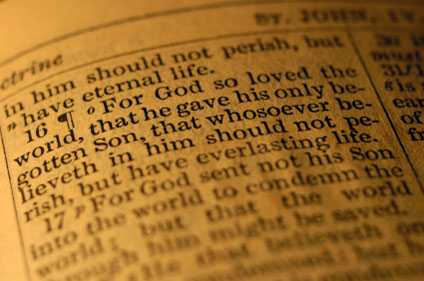In previous posts we have been looking at the
Authentic Humanity of Jesus Christ. In the previous post we examined John 3:16-17 as well as other pertinent passages. Before we get into another text we should note a few more things that can said to be true about the humanity of Jesus Christ. It is just as heretical to deny the humanity of Christ as it is to deny His deity. These two propositions must be held to be true by believers (see John 20:28).
The humanity of Christ however is real and authentic. The Scriptures indicate this to us for our benefit and learning about Jesus Christ. They are not to diminish the person of Jesus Christ in any sense. Rather it emphasizes His superlative character and example that are preserved for us until this day. The humanity of Christ does not seem to teach us anything about the nature of God. Instead, it seems to teach us that of all the things that can be said to be true of the Messiah one of them is that He will be and is an authentic human.
Physical Limitations:
If the humanity of Jesus is as genuine as we would expect it to be he would have physical limitations. In Luke 2:7-11 we see that Jesus is born. He has come through the womb of a woman as is any man that has ever lived. Luke recorded that Mary “gave birth to her first born son” and that “born this day...a Savior who is Christ the Lord.” (2:7,11 ESV) In Matthew 4:1 we see that Jesus is tempted. In John 4:6 and Mark 4:38 Jesus gets tired. In Matthew 4:2 He hungers.
Mental Limitations:
If the humanity of Jesus is as genuine as we would expect He would also experience mental or psychological limitations. Such limitations have a profound impact upon the Incarnation as God who is aware of Himself in a completely human nature and body. In Luke 2:52 Jesus “increased in wisdom and stature” (ESV). This indicates that Jesus gained knowledge and grew in intellectual acumen. In Matthew 24:36 and Mark 13:32 the angels and the Son do not know the “day or hour” of the Son’s return. The KJV and the NKJV omit any reference to the Son in these verses. There is a variant in both places but the conclusion is inescapable upon either reading. In addition, New Testament scholar Philip W. Comfort notes:
“The same omission of “nor the Son” occurs...but in very few manuscripts. The documentary support in favor of its inclusion is impressive in both gospels...it is far more likely that the words here were omitted...because scribes found it difficult to conceive of Jesus not knowing something his father knew--specifically, the time of the second coming.”(1)
Jesus Christ experienced genuine human physical and mental limitations. He tired, hungered and wept (John 11:35). In His human consciousness He grew intellectually and at times did not know certain things. As genuinely human Jesus also was subject, submitted, learned obedience and was made perfect.
Jesus Christ is the living Logos or Word of the Father, who became flesh in Jesus of Nazareth (John 1:1, 14). He was conceived by the Holy Spirit in the virgin Mary (cf. Matt. 1:23, Luke 1:35). Yet Hebrews 1:3 says that “The Son is the radiance of God’s glory and the exact representation of his being, sustaining all things by his powerful word.”(NIV 2011) Christ was fully divine and fully human, deity and humanity united indivisibly in one person.
It was the man or flesh of Jesus that was subjected in Luke 2:51. Because of His consciousness as human He submitted Himself to God (I Peter 2:23) as any man does. It is the writer of Hebrews who tells us that according to his authentic humanity Jesus learned obedience (Hebrews 5:8) and was finally made perfect (Hebrews 5:9). Yet, this same Jesus was above all. (John 3:31) As man He prays but as God he answers prayer.
As human, Christ, the Son of God, partook of our poverty so that we could partake of his riches (2 Cor 8:9). By the power of the Holy Spirit, Christ inaugurated the Kingdom of God here and now on earth (Matt 12:28). He died on the cross for our sins (Heb 9:14) and rose again for our salvation on the third day (Rom 1:4). He ascended on high in order to pour out the Holy Spirit (Acts 2:33) and is coming again, in the clouds of heaven, to fulfill the work of the Kingdom of God (Acts 1:11). To the church at Colosse Paul wrote that Jesus is "the beginning and the firstborn from among the dead, so that in everything he might have the supremacy. For God was pleased to have all his fullness dwell in him," (NIV 2011)
In the following post we will look closer at John 6:38.
NOTES:
1) Comfort Philip W. (2008) New Testament Text and Translation Commentary (73) Tyndale House Publishers, Inc






